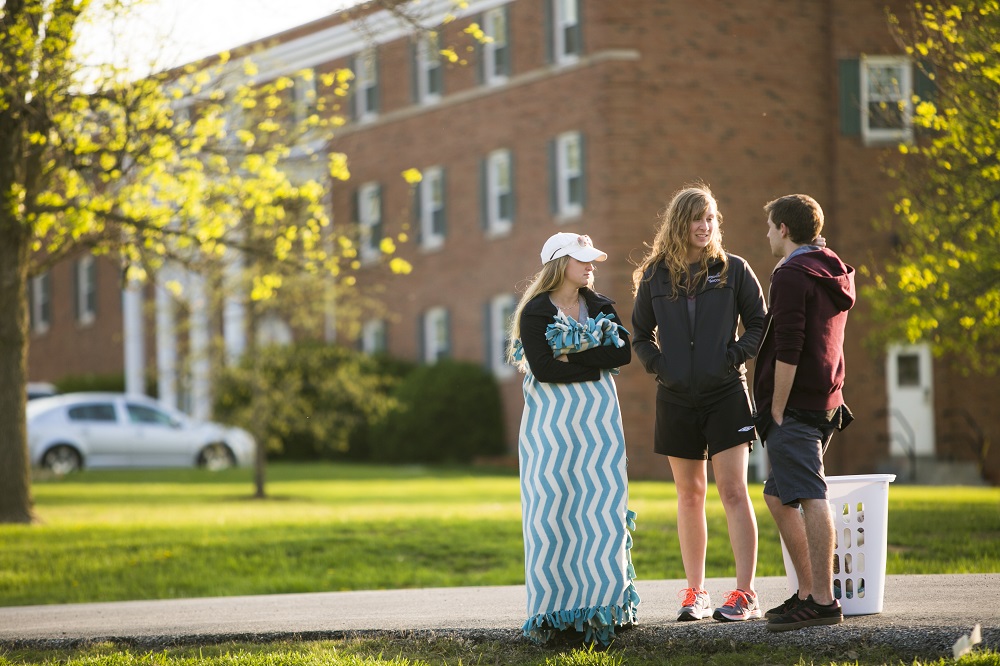The Art of Napping: the biology of a good night’s sleep
On October 12, Dr. Anna Hulbert of University Physicians presented on “The Art of Napping” as part of the Wisdom for Wellness LEAD event series.
At the event, Hulbert spoke on sleep hygiene, signs of sleepiness, sleep need, sleep stages, the art of napping and the effects of sleep on overall health. She also touched on how the use of electronic devices before bed can hinder a persons sleep pattern.
A 2011 National Sleep Foundation survey found that 95 percent of Americans use some type of electronics (television, computer, video games, cell phone) at least a few nights a week within the hour before bed.
“Light from electronic devices such as smart phones will affect your circadian rhythms,” explains Hulbert, “And college students use their smart phones nine hours a day on average.”
Sleep is such an important part of our health that Centers for Disease Control and Prevention (CDC) depicts insufficient sleep as a public health epidemic. They have estimated that 50 million to 70 million American adults have a sleep or wakefulness disorder.
In Hulbert’s presentation she emphasized this concern for public health even further, explaining that lack of sleep decreases immune system functions, increasing risk for pneumonia, diabetes, heart disease and cancer.
“Sleep is a very relevant topic for college students and too often takes a backseat to busy schedules,” explains Jennifer Burton, Office Manager for William Woods University Counseling and Health Services and Event Coordinator for the Wisdom for Wellness LEAD series, “Learning to make sleep a top priority in our lives is important for optimum health, not only physically, but mentally and emotionally as well.”
The event offered an assortment of helpful tips that students can apply to their every day routines.
Presentation attendee and junior Grace Barnes felt Hulbert “had a good idea of what college students go through and how we can make small changes to improve our sleep hygiene.”
Barnes also identified that the part of the presentation she found most interesting was learning “that music can help you sleep if the beats per minute (BPM) are in the proper range.” She went on to confirm, “I’ve personally seen this in my life and I even have a sleep playlist for nights when I want to be well-rested.
William Woods University students pursuing their bachelors in biology will have the chance to take a closer look into the functions of the immune system and inner workings of the body, including factors that can be harmful to your health – such as lack of sleep – through courses like BIO313: Human Anatomy and Physiology I and BIO323: Human Anatomy and Physiology II.
Apart from class, students can also get involved with the William Woods University Biology Club and Pre-Medicine Club to learn more and get to know other students who share your same passions.


